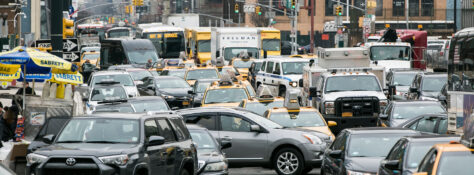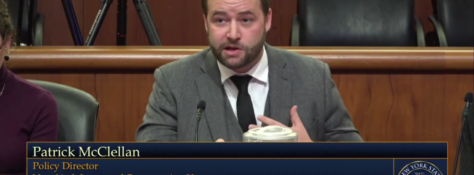NYLCV Policy Director Pat McClellan testified before the Environmental Conservation and Energy Committees about the need to advance cap-and-invest and fund clean water and the Environmental Protection Fund, among other priorities.
Learn MoreThe New York League of Conservation Voters applauds Gov. Kathy Hochul for reinstating congestion pricing. Following her announcement, the board of the Metropolitan Transportation Authority (MTA), the state agency that will run the congestion pricing program, approved the revised plan by a 12-1 vote, and a few days later, the Federal Highway Administration and city and state transportation departments signed off so that it can begin in early January.
Learn MoreNew Yorkers across the state - from the North Country to the Hudson Valley - went to the polls on
Learn MoreNews
Battery Energy Storage Systems (BESS) are an increasingly important and increasingly discussed component of the renewable energy future needed to displace fossil fuels. As we make the transition to wind, solar and hydroelectric power, an important element is how to store electricity when it’s generated but is not needed at that moment.
Learn MoreNews
Greening the grid – a top priority for NYLCV – means replacing greenhouse gas producing power sources, like coal combustion and natural gas, with renewable energy, like wind, solar and hydro power. But it doesn’t stop with power generation; it also means building up transmission capacity to deliver clean energy to homes and businesses across the state.
Learn MoreNews
A major NYLCV goal in 2024 is to reduce pollution and greenhouse gas emissions from the transportation sector, which is one of the highest emitting sectors in the state. First among our transportation priorities is passing a Clean Fuel Standard, and now is the time to let your state representatives know that you support this climate-friendly policy.
Learn MoreThe New York State Parks system will celebrate its 100th anniversary in 2024 and the New York League of Conservation
Learn MoreGov. Hochul introduced the program as part of her 2023 State of the State address and on December 20, the New York State Energy and Research Development Authority and the Department of Environmental Conservation announced the next big step by releasing a pre-proposal outline and Climate Affordability Study.
Learn More







